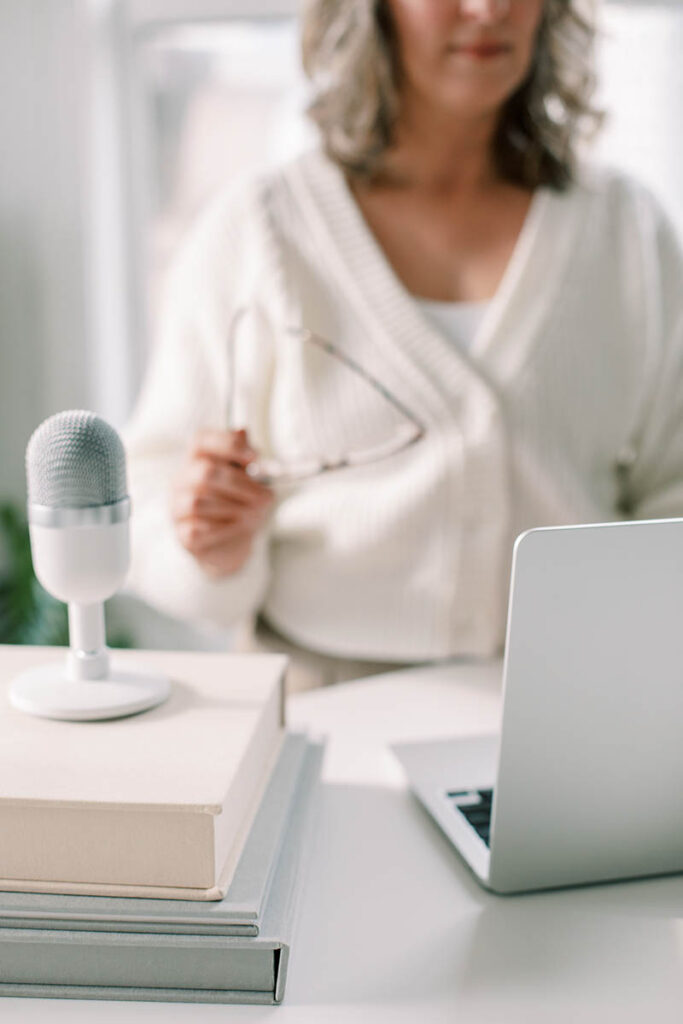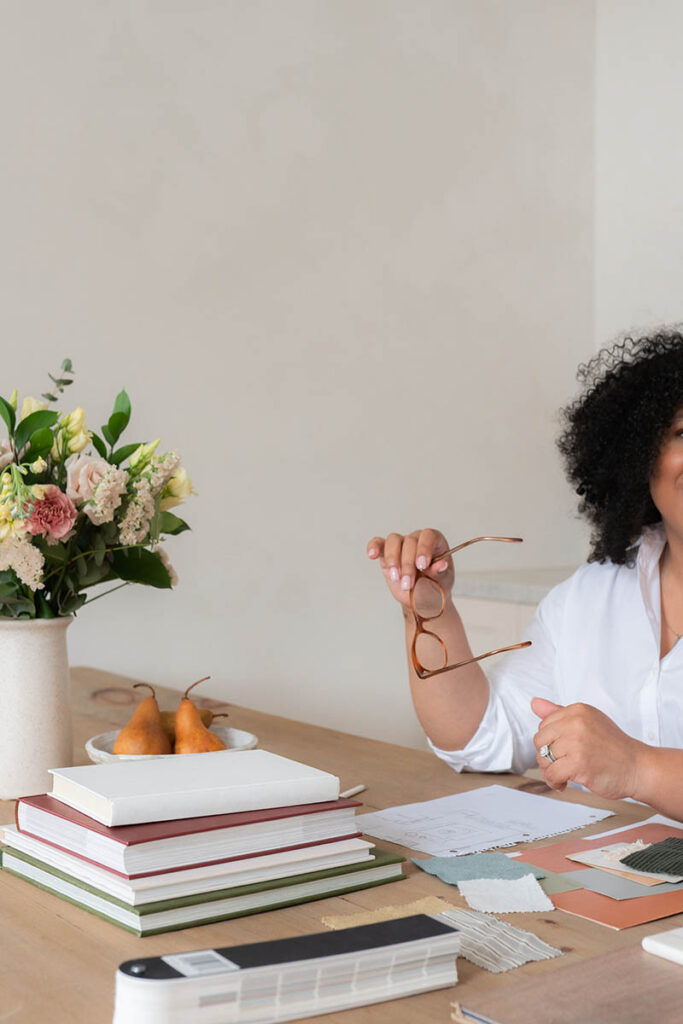5 Ways to Protect Your Eyes
If you’ve been struggling with poor vision, you’re not alone. According to the Vision Health Initiative (VHI), “Approximately 12 million people 40 years and over in the United States have vision impairment, including 1 million who are blind, 3 million who have vision impairment after correction, and 8 million who have vision impairment due to uncorrected refractive error.”
While some causes of vision loss, such as age-related macular degeneration, are out of your control, there are steps you can take to protect vision and keep your eyes healthy.

Get a Comprehensive Eye Exam
If you haven’t had your eyes checked in a while, make an appointment for a comprehensive eye exam. This type of exam will assess the health of your eyes and identify any problems that may be putting your vision at risk.
According to the American Optometric Association (AOA), “most eye and vision problems have no obvious signs or symptoms, so you may not know a problem exists. A comprehensive dilated eye exam can detect more than 80 percent of all potentially treatable eye diseases.”
Even if you don’t have any symptoms of vision problems, it’s important to get your eyes checked regularly. The AOA recommends that adults have a comprehensive eye exam every one to two years.
If you have risk factors for vision problems, such as diabetes, high blood pressure, or a family history of eye disease, you may need to be seen more frequently.
Wear Protective Eyewear
Whenever you’re participating in activities where there is a risk of eye injury, it’s important to wear the appropriate protective eyewear.
This includes activities such as racket sports, hockey, football, and baseball. It’s also important to wear protective eyewear when working with power tools or chemicals.
If you wear contact lenses, there are also special types of protective eyewear that can help keep your eyes safe. If you’re going to be participating in activities where there is a risk of eye injury, make sure to ask your eye care professional about the best type of protective eyewear for you.
You also need to protect your eye health and vision from the sun’s harsh UV rays, even on cloudy days. Your eyes can actually get sunburned, aside from just being irritated by the sun.
Wearing sunglasses also helps prevent squinting, which can lead to wrinkles around your eyes. Wearing sunglasses that block at least 99 percent of both UVA and UVB rays can help reduce your risk of developing cataracts, macular degeneration, and other vision problems.

Eat a Healthy Diet
Eating a healthy diet is important for your overall health, and it can also help protect your vision. Eating plenty of fruits and vegetables is especially important.
Foods that are rich in antioxidants, such as spinach, kale, and berries, can help reduce your risk of developing cataracts and macular degeneration.
Omega-3 fatty acids are also important for eye health. These healthy fats can be found in salmon, tuna, and other cold-water fish.
You can also get omega-3 fatty acids from flaxseed oil, soybean oil, and walnuts. Some of the most important nutrients that help to protect your vision and reduce conditions that might affect your vision include:
- Zinc
- Vitamin A
- Vitamin E
- Vitamin C
- Omega-3 fatty acids
Monitor Your Eye Health
If you have a family history of vision problems or other risk factors for eye disease, it’s important to monitor your eye health closely. This may involve having more frequent comprehensive eye exams.
In some cases, you may also need to be seen by a retinal specialist or other eye care professional. These doctors can provide specialized care and treatment for conditions that affect the retina, such as macular degeneration and diabetic retinopathy.
You can also take steps at home to monitor your eye health. If you notice any changes in your vision, such as blurriness, difficulty seeing at night, or floaters, be sure to talk to your doctor. These could be signs of a serious problem that needs to be treated right away.
Try Some Eye Exercises
There are also some exercises that you can do with your eyes that help to improve vision and eye health. One example is the 20-20-20 rule.
Every 20 minutes that you’re staring at a screen, look away for 20 seconds and focus on an object that’s at least 20 feet away. This can help to reduce eye strain and prevent dry eyes.
Another exercise is simply to roll your eyes every day. Do this gently in one direction about 10 times, then in the opposite direction about 10 times. This helps to keep your eye muscles strong and healthy.
You can also try blinking exercises. Every 20 minutes that you’re staring at a screen, blink 10 times quickly. Blinking helps to keep your eyes lubricated and prevents dry eyes.

How To Protect Your Eyes Tips for Daily Life
Aside from practicing healthy habits, there are also simple things you can do every day to protect your eyes and reduce strain.
Take frequent breaks from screens
Exposing your eyes to screens for extended periods of time can cause headaches, blurred vision, and dry eyes. Make sure to take breaks every 20 minutes or so to give your eyes a rest.
Whether it’s a computer, phone, or TV screen, taking breaks to look away and rest your eyes can help reduce eye strain.
Use proper lighting
Having adequate lighting is important for protecting your eyes. If the light is too dim, you may strain your eyes trying to focus. On the other hand, if the light is too bright, it can cause glare and make it difficult to see.
Try to position yourself in a well-lit area when using screens or reading. You can also adjust the brightness and contrast settings on your devices for optimal viewing.
Adjust lighting
Make sure that the lighting in your workspace is adequate for the tasks you’re doing. You can also make adjustments to reduce glare, which can cause eye strain.
Almost all screens come with brightness and contrast settings that can be adjusted to reduce glare. You may also want to consider using an anti-glare screen protector for your computer or mobile device.
Keep your workplace clean
A dirty workspace can lead to eye strain. Keep your desk free from clutter, dust, and any other debris that can irritate your eyes.
Also make sure to regularly clean your computer or mobile device screen to prevent dust and dirt from affecting your vision.
Use the right eyewear
If you wear glasses or contacts, make sure that your prescription is up-to-date and that you’re wearing the appropriate type of lenses for your needs.
Wearing the wrong, inappropriately prescribed glasses or contacts can cause eye strain, headaches, and other vision problems. Talk to your eye care professional about the best options for you.
In addition, if you have prescription eyewear, make sure to wear them as directed by your doctor. Avoid wearing non-prescription glasses or contacts for prolonged periods of time, as they may not provide the necessary level of protection for your eyes.
Keep your eyes clean
Wash your hands before touching your eyes and avoid rubbing them. This can help reduce the risk of eye infections.
Also, make sure to regularly clean your glasses or contacts according to the recommended guidelines.
Keep your eyes well moisturized
If you suffer from dry eyes, use eye drops recommended by your doctor to help keep your eyes moist and healthy.
Dry eyes can cause discomfort, blurry vision, and even damage to your cornea if left untreated. Using eye drops as directed can help alleviate these symptoms and keep your eyes well moisturized.

Frequently Asked Questions
In this section, you’ll find answers to some common questions about eye health and how to protect your vision from various conditions.
Q: Why is it important to protect your eyes?
A: Your eyes play a crucial role in your daily life, allowing you to see and experience the world around you. Protecting them is important for maintaining good vision and preventing potential problems that can affect your eye health.
Q: What are some common risk factors for eye diseases?
A: Risk factors vary depending on the specific condition, but some common ones include family history, age, chronic health conditions (such as diabetes), and long-term exposure to harmful substances (such as UV rays).
Q: Can eye exercises really improve vision?
A: While there’s no scientific evidence that eye exercises can permanently improve vision, they may help to reduce strain and discomfort in some people. Consult with your doctor before starting any eye exercises.
Q: How often should I get my eyes checked?
A: It’s recommended to have a comprehensive eye exam at least once every two years, or more frequently if you have risk factors for certain eye diseases. However, if you notice any changes in your vision or experience discomfort, make sure to consult with your doctor right away.
Q: How do I keep my eyes healthy while using computer?
A: To prevent eye strain and irritation while using a computer, make sure to take frequent breaks, adjust your screen’s brightness and contrast settings, and use proper lighting in your workspace.
Additionally, keeping your workplace clean and maintaining good posture can also help protect your eyes.
Remember to consult with an eye care professional if you have any concerns about the impact of computer use on your vision
Q: How do gamers keep their eyes healthy?
A: Gamers can take several measures to protect their eyes while gaming, such as taking frequent breaks, using proper lighting and adjusting screen settings, maintaining good posture, and keeping their eyes clean and well moisturized.
It’s also important to maintain a healthy balance between gaming and other activities that don’t involve screens.
Consult with an eye care professional for personalized advice on how to maintain good eye health while gaming.
Q: As a programmer what should I do to protect my eyes and vision?
A: As a programmer, it’s important to take breaks every 20 minutes or so to rest your eyes. You can also follow the tips mentioned above for reducing eye strain while using screens, such as adjusting screen settings and maintaining good lighting in your workspace.
Additionally, practicing good posture and ensuring a clean work environment can also help protect your eyes.
Q: How can I protect my eyes from the harm from UV blue rays?
A: To protect your eyes from the harmful effects of UV blue rays, make sure to wear sunglasses that have 100% UVA and UVB protection when going outdoors.
You can also consider investing in blue light blocking glasses if you spend a lot of time in front of screens. Remember to consult with an eye care professional to find the best option for you.
Lastly, always wear protective gear such as safety glasses when working with bright or intense light sources to prevent potential damage to your eyes.





